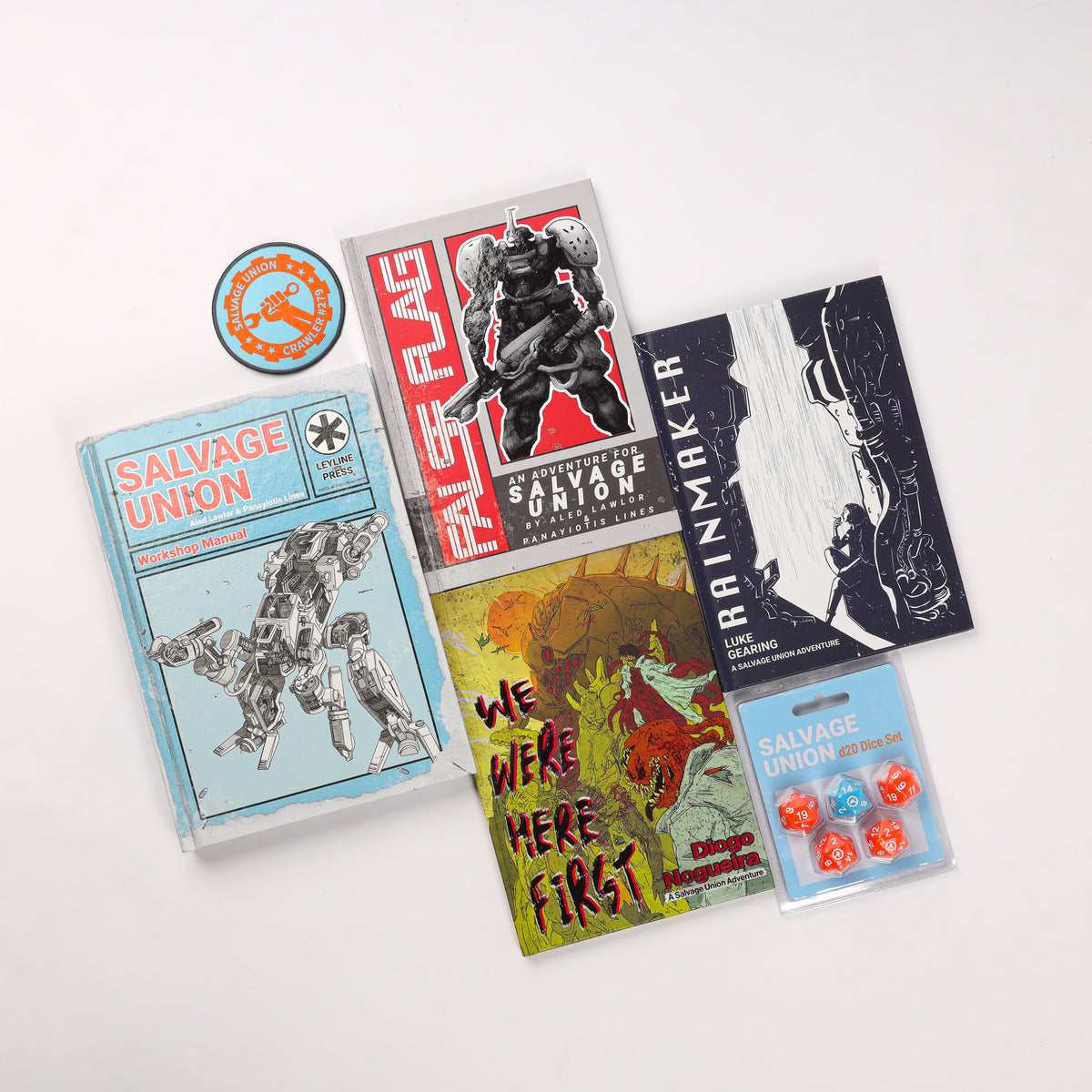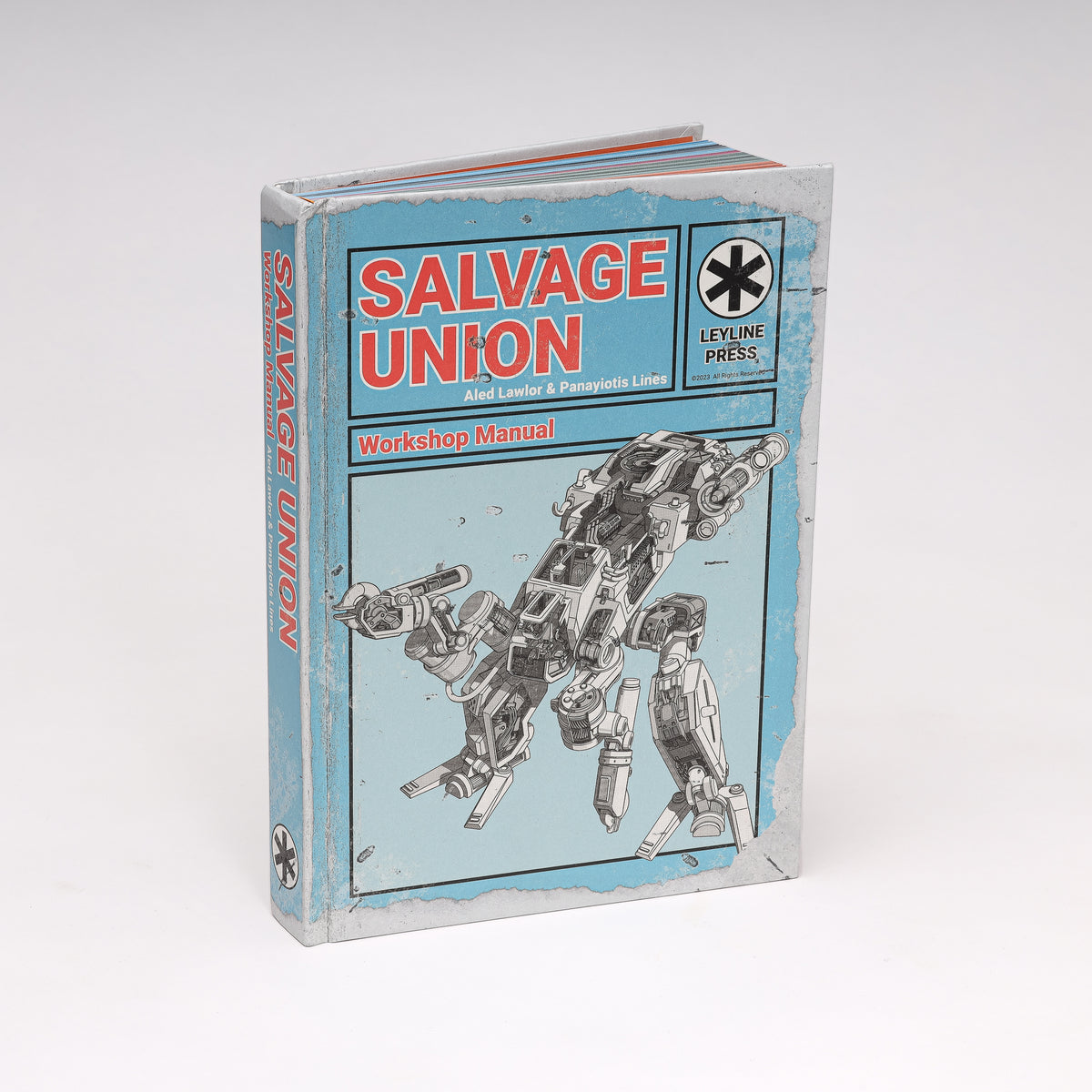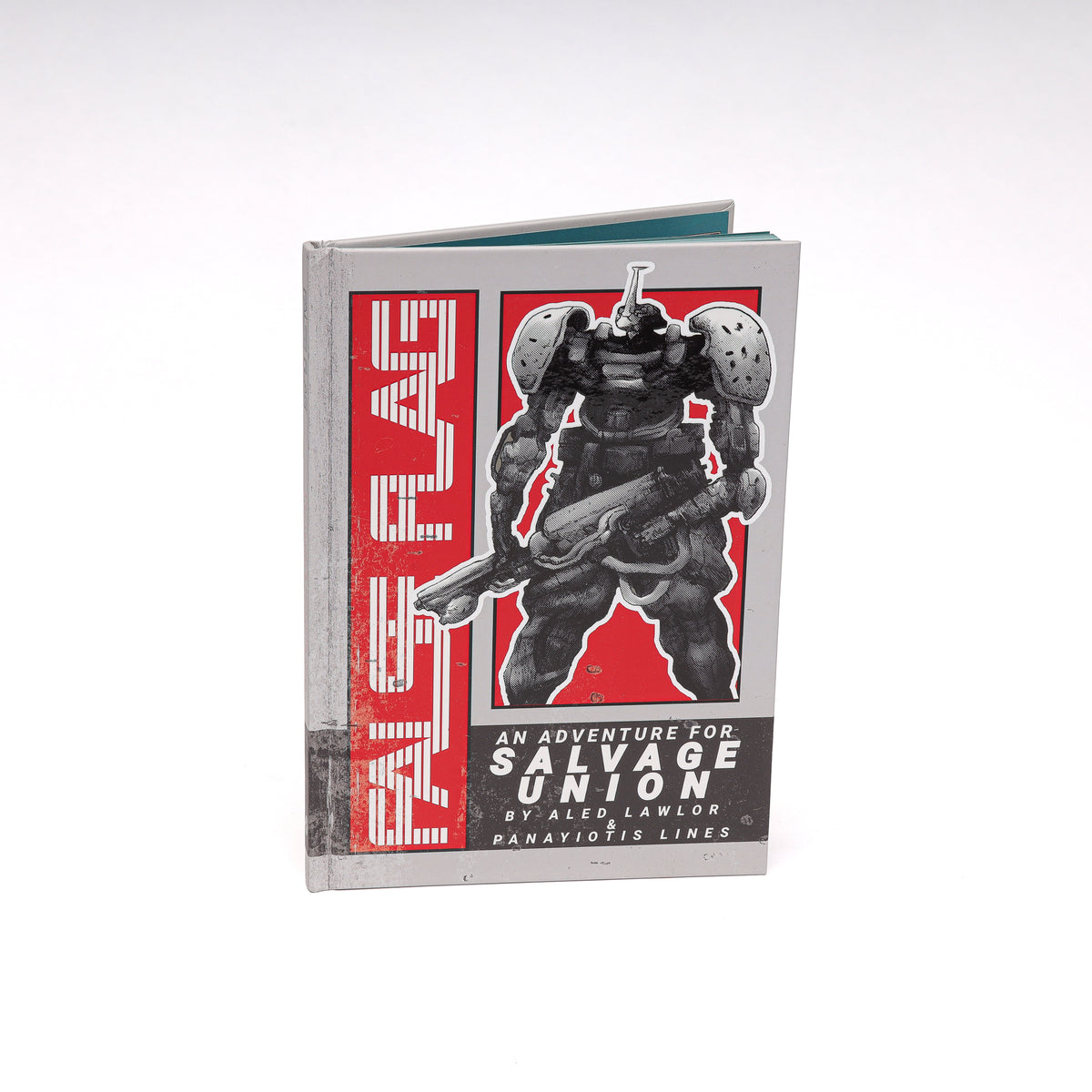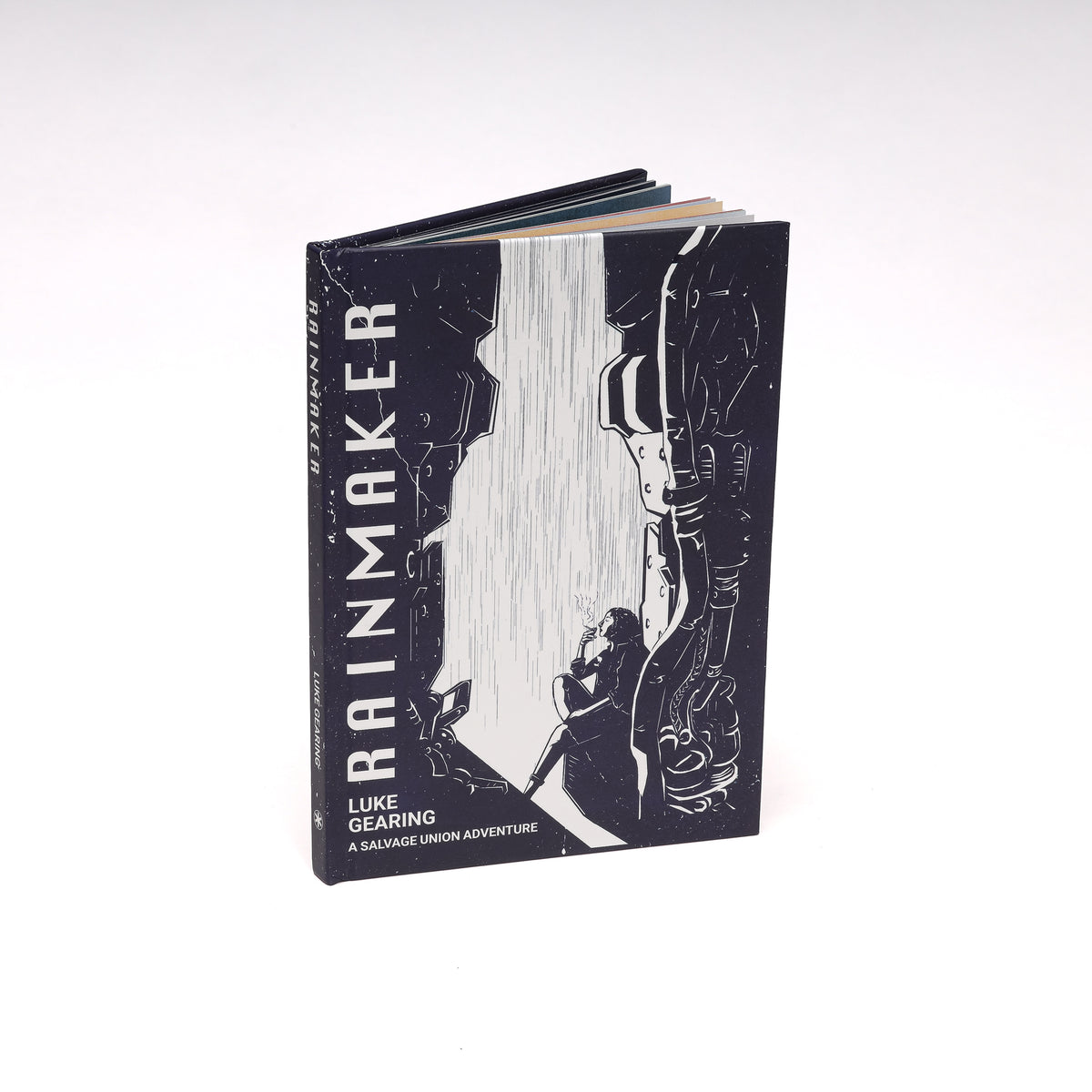One of the key mechanics that makes Salvage Union works is the numerous Systems, Modules and Abilities that allow players to directly ask The Mediator (GM) questions and get true answers from them.
For example the Spectrum Mech, which can be piloted at Tech 1, the starting level of play, has the following Mech Chassis Ability.
Data Scanner: The Spectrum is a mobile data repository that has all manner of information stored within it. It is able to scan objects to both gain information about them and store that data to access at a later time.
Range: Close // Short Action // 2 EP // Scanner //
You scan a single object in Range. This can be a Mech, System, Module, vehicle, creature, artefact, structure, fauna, or flora, or anything else appropriate in the world.
You may ask the Mediator two questions about this object and the answer they give must be true. This can include questions about mechanics such as a Mech’s System Slots, or a creature’s Hit Points. This information is stored in your Spectrum’s data core and you will have constant access to it. It will automatically upload to your Union Crawler during Downtime.

This ability has many positive effects to play.
It encourages players to ask questions about things in the world which helps to flesh out the setting.
It tells The Mediator (GM) to answer these questions and in doing so creates a conversation between the player and mediator about the game situation.
Game Masters often have a habit for better or worse of wanting to gate information from players. This comes from a somewhat flawed belief that a situation in a game will be boring, too easy, or spoiled if the players know too much about it. In practice the more information players know about any given situation in a tabletop roleplaying game the more likely they are to engage with it. This is as the more information they have the more they are able to make informed decisions and making informed decisions as though you are the character you are playing is effectively the definition of roleplaying. If players don’t have the information they need to make informed decisions then they are usually making decisions much more blindly which at worst can make them feel pretty random and arbitrary.
The other useful element is that it tells The Mediator (GM) what useful information the players actually want to know about the situation. In a traditional game the GM would typically ask players to roll a knowledge check and then impart them information but this often gets confused, a lot of systems are unclear about what results what dice result get and the GM will often end up giving information to the players that isn’t particularly relevant to what they actually want to know. Cutting out the chaff and just framing it as questions and answers makes it a lot easier to drill down to what's actually relevant in the situation.
This is doubly useful in a game with many science-fiction elements like Salvage Union where how each piece of technology interacts may not be as obvious as what you can do with a rope in a fantasy game. One of our design goals for Salvage Union was to create a rules light and more narrative driven mech game, we wanted to avoid as much as possible as a result to get bogged down in what each particular bit of tech did. Instead of noting down all the specific ways in which for example a Survey Scanner would literally work as technology in the world we left it open ended, using the questions mechanic to frame it in much simpler terms. This is so players don’t have to worry too much about working out the potentially myriad and confusing things technology can do in an unknown game world and can focus on just getting the information they need.
Speaking of the Survey Scanner this System is important as any Mech can install it right at the start of the game, giving everyone the option to have an information gathering system.

Other examples of similar abilities include:


The ‘Well Actually’ Hacker Class Ability. This variant is more specific to the Hacker class providing some niche protection and has some fun roleplaying opportunities. It's also an ability the Hacker can pick up at the start of the game, which is important as these abilities work best when players get access to them early on.

The Talk Shop Ability is another information gathering ability that focusses on knowledge specific to the Engineer Class. It further encourages engagement with NPC's in the world and can be a useful way to make friends in a rough, post-apocalyptic world. This is provides both information gathering with some additional benefits.
We’ve also baked the mechanic into the games Campaign Mode and downtime system with players being able to get additional pieces of information in their Union Cantina as well as from unique NPC’s aboard their Union Crawler which can help inform them which direction they want to go in the wider campaign world map.
All these information gathering abilities sprinkled throughout Salvage Union help make the game smooth and easy to run and play.
Players having definitive information about any given situation helps to smooth out play significantly, instead of players umming and erring about what to do they can get some solid answers and then formulate a plan based on that information rather than being in the dark. The other cool element this rule gives is allowing both the players and The Mediator (GM) to flesh out the world more during play. If for example the players begin to ask questions about whether any Mechs can be detected within the bowls of a mountain range, this can prompt the GM to consider that perhaps an ancient Fallout shelter is hidden within and add methods for the players to go and explore it. This leads to its own form of emergent play.
Or if players are really curious about whether Bio-Titans, Kaiju like monsters, exist within a given area this can prompt The Mediator to include more Bio-Titan within the game world by either working them in to the wider campaign or even just adding them in response to the players questions. This is because the questions the players ask are also what they're interested in exploring within the game.
What are your thoughts? How do you use information gathering abilities in your games whether playing, running or designing?

Interested in playing Salvage Union?
Salvage Union is now available to buy here.
You can download the free QuickStart here https://leyline.press/products/salvage-union-beta-quickstart-digital-edition-pdf
You can join the Salvage Union Discord here where we're running weekly playtest games- https://discord.gg/gmM6jTT8qm
Follow Salvage Union on Twitter - @salvageunion
Follow Salvage Union on Instagram - @salvageunion
Subscribe to the Leyline Press newsletter here to receive updates Salvage Union and our other games.






0 comments